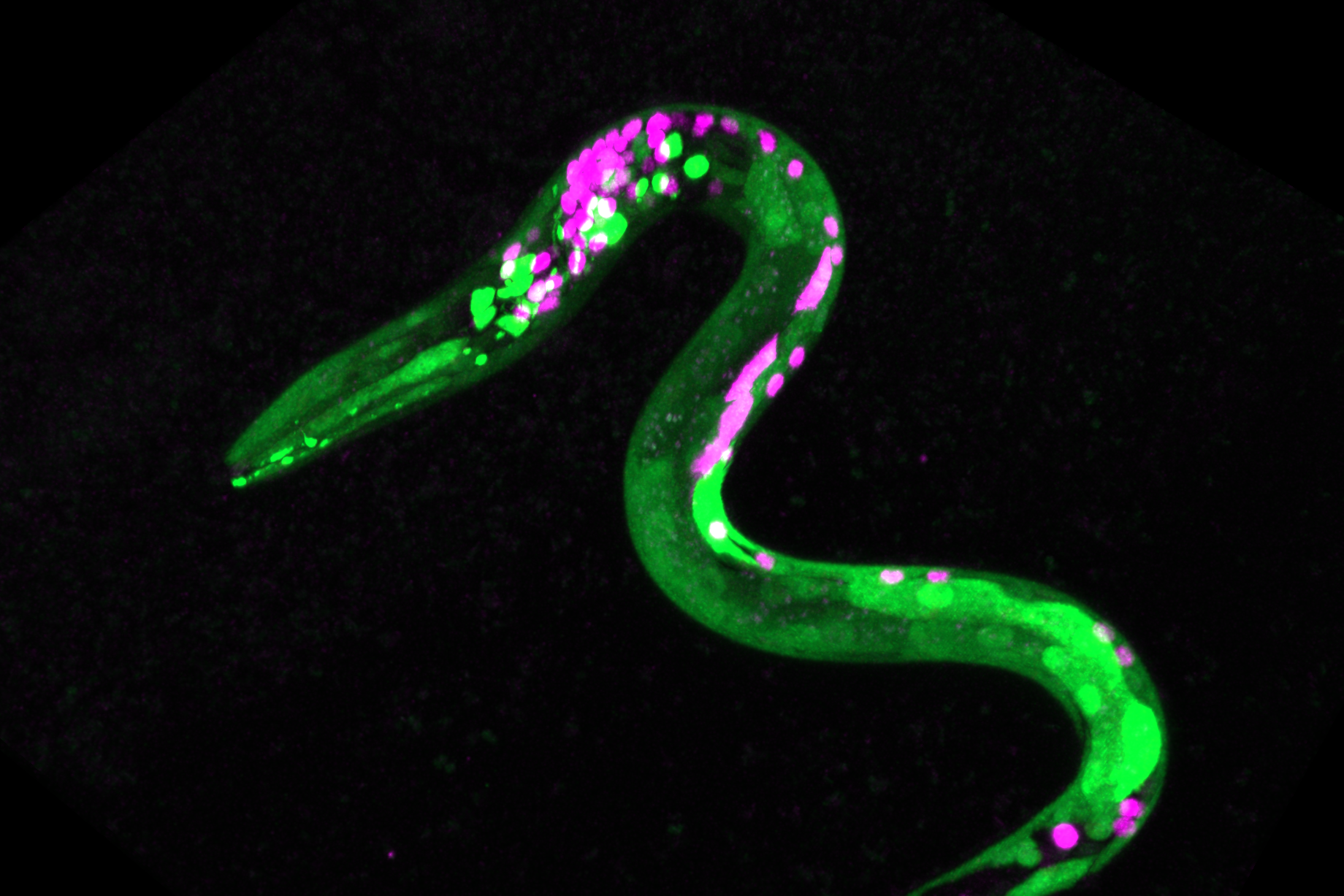Worms get the munchies after having cannabis-like substance
The subjects showed a stronger preference for higher-calorie foods – similar to humans craving junk food.

Your support helps us to tell the story
From reproductive rights to climate change to Big Tech, The Independent is on the ground when the story is developing. Whether it's investigating the financials of Elon Musk's pro-Trump PAC or producing our latest documentary, 'The A Word', which shines a light on the American women fighting for reproductive rights, we know how important it is to parse out the facts from the messaging.
At such a critical moment in US history, we need reporters on the ground. Your donation allows us to keep sending journalists to speak to both sides of the story.
The Independent is trusted by Americans across the entire political spectrum. And unlike many other quality news outlets, we choose not to lock Americans out of our reporting and analysis with paywalls. We believe quality journalism should be available to everyone, paid for by those who can afford it.
Your support makes all the difference.Cannabinoids – substances found in the cannabis plant – make worms crave their favourite snacks, just like humans, scientists have found.
It is known that smoking or eating cannabis can increase the desire for eating salty, sweet or fatty carbohydrate-rich treats such as crisps or ice cream.
In the study, published in the journal Current Biology, researchers found that when soaked in a cannabinoid, the worms (Caenorhabditis elegans) showed a stronger preference for higher-calorie foods, similar to humans craving junk food.
The finding suggests cannabis can interfere with an important mechanism that helps regulate appetite.
Cannabinoids are known to act by binding to proteins in the brain, nervous system and other parts of the body called cannabinoid receptors.
If cannabinoids contain a chemical known as THC, it can induce feelings of relaxation and contentment.
Normally, these receptors respond to cannabinoids that are naturally present in the body, known as endocannabinoids.
Cannabinoid signalling is present in the majority of tissues in our body
The endocannabinoid system plays important roles in eating, anxiety, learning and memory, reproduction and metabolism.
Study author Shawn Lockery, a professor of biology and neuroscience at the University of Oregon in the US, said: “Cannabinoid signalling is present in the majority of tissues in our body.
“It therefore could be involved in the cause and treatment of a wide range of diseases.”
For the study, the scientists soaked the worms in anandamide, an endocannabinoid.
It is thought that worms find high-calorie food more desirable, and actively seek it out.
When soaked in anandamide, that preference became stronger, the researchers said, adding that the worms flocked to the food and stayed there longer than usual.
Prof Lockery said: “We suggest that this increase in existing preference is analogous to eating more of the foods you would crave anyway.
“It’s like choosing pizza versus oatmeal.”
The researchers said that based on their findings, it is possible that worms could be used in testing and screening drugs for human use.
Prof Lockery said: “The fact that the human cannabinoid receptor gene is functional in C. elegans food-choice experiments sets the stage for rapid and inexpensive screening for drugs that target a wide variety of proteins involved in cannabinoid signalling and metabolism, with profound implications for human health.”